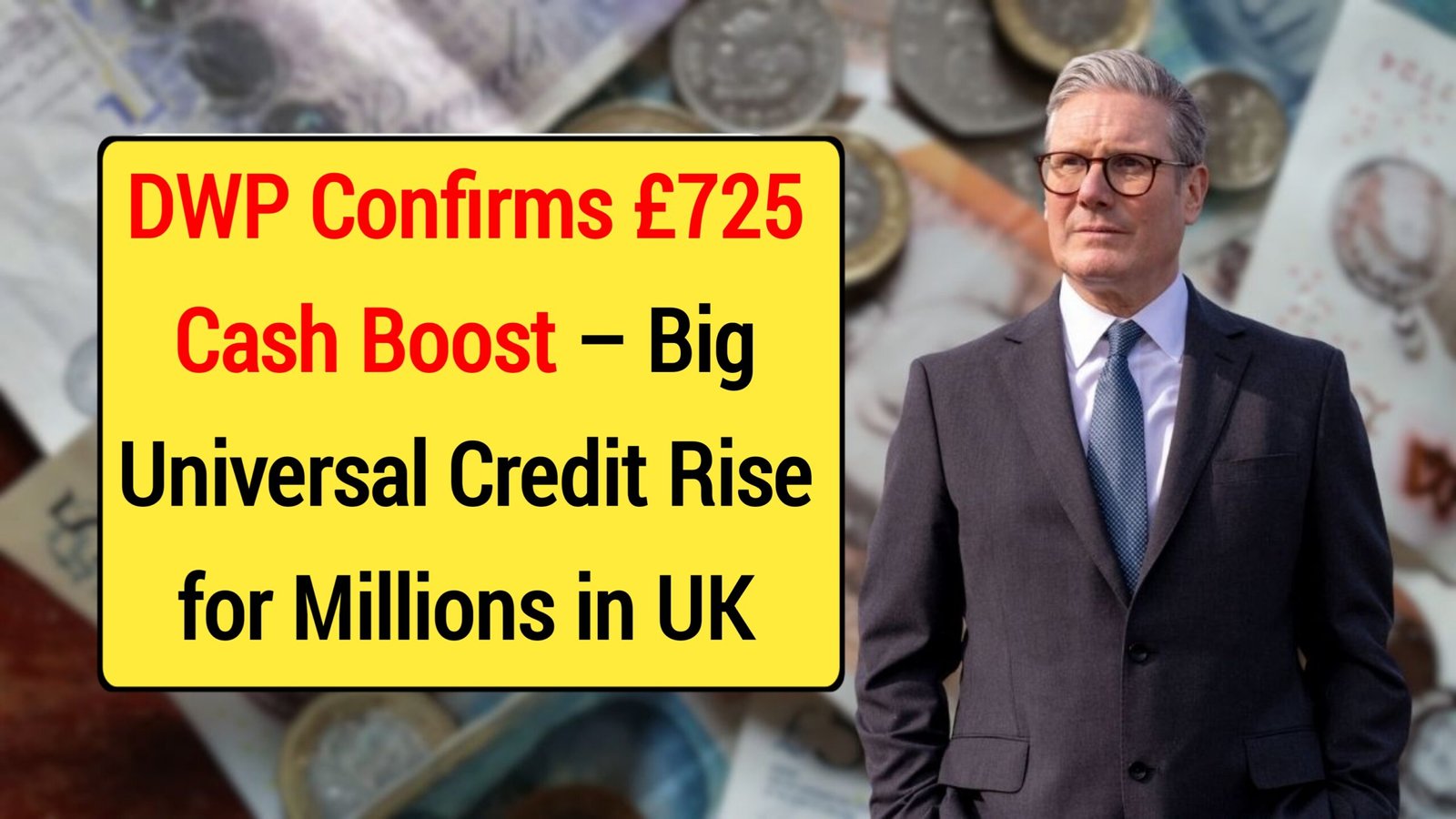Millions of Universal Credit claimants across the UK are set to receive a significant financial boost, as the Department for Work and Pensions (DWP) confirms a new payment of £725. This increase comes amid rising living costs, providing much-needed support for families and individuals who rely on government benefits. The new payment aims to ease financial pressures and improve household budgets for millions of low-income households.
The announcement has generated widespread attention, as it represents one of the largest increases in Universal Credit payments in recent years. Beneficiaries will see a noticeable difference in their monthly income, helping them manage day-to-day expenses more comfortably.
Who is Eligible for the £725 Boost
The £725 cash boost is primarily targeted at Universal Credit recipients, but it also extends to certain other benefit claimants. Eligibility criteria are designed to ensure that the support reaches those who need it most. Individuals and families already receiving Universal Credit will automatically qualify for the increase, while new applicants must meet standard benefit eligibility rules.
The DWP has clarified that the boost will be applied automatically in most cases, meaning claimants do not need to submit additional forms or applications. However, it is important to keep personal details up to date with the DWP to ensure timely payments.
How the Payment Will Be Delivered
The payment of £725 will be credited directly to recipients’ bank accounts. The DWP has stated that payments will begin in September 2025, with most claimants receiving the funds within the first few weeks of the month.
For individuals who receive Universal Credit via alternative methods, such as prepaid cards or third-party arrangements, the DWP has confirmed that the boost will be applied in the same way to avoid delays. This approach ensures that all eligible claimants benefit from the increase simultaneously.
Impact on Household Budgets
The £725 increase is expected to make a tangible difference for many households struggling with rising costs, including energy bills, rent, and groceries. For families living on tight budgets, this extra cash can help cover essential expenses and reduce financial stress.
Experts suggest that the boost could also have a wider economic effect, as increased spending by benefit recipients may support local businesses and contribute to economic activity in communities across the UK.
Why the DWP Introduced the Boost
The DWP introduced the £725 boost in response to ongoing challenges faced by benefit claimants. Rising inflation and higher living costs have placed significant strain on household budgets, prompting the government to take action.
This move is part of a broader strategy to support vulnerable households and ensure that Universal Credit continues to provide a meaningful safety net. By increasing payments, the DWP aims to reduce poverty and help families maintain a decent standard of living.
Reactions from Claimants
The announcement of the £725 boost has been welcomed by claimants across the UK. Many have expressed relief and gratitude, noting that the increase will help them manage everyday expenses more easily.
Social media platforms and online forums are filled with discussions about how recipients plan to use the extra funds. Common uses include paying off bills, purchasing groceries, and covering unexpected expenses, demonstrating the immediate impact of the boost on daily life.
How to Check Your Payment
Claimants can check their payment status through their Universal Credit online account. The DWP provides detailed information about payment dates, amounts, and how the boost will be applied.
It is essential to regularly update personal and financial details to avoid delays. Any changes in income, household composition, or bank details should be reported promptly to ensure smooth processing of the £725 payment.
Long-Term Implications
While the £725 boost provides immediate relief, it also raises questions about long-term support for Universal Credit recipients. Experts suggest that ongoing adjustments to benefit levels may be necessary to keep pace with inflation and changing living costs.
The DWP has indicated that it will continue to monitor economic conditions and review benefit payments as needed. This proactive approach is intended to maintain the relevance and effectiveness of Universal Credit as a key support mechanism for millions of UK households.
Other Benefits and Support Measures
In addition to the £725 boost, the UK government offers a range of support measures for low-income households. These include housing benefits, council tax reductions, and energy bill assistance schemes.
Combining these measures with the Universal Credit increase can significantly improve financial stability for families and individuals. Claimants are encouraged to explore all available support options to maximise their household income and manage expenses effectively.
Key Dates to Remember
The £725 boost will be applied starting 1 September 2025. Most claimants can expect to see the payment reflected in their accounts within the first few weeks of September.
It is important for recipients to ensure that their personal and banking information is up to date with the DWP to avoid delays in receiving the payment. Regularly checking the Universal Credit online portal can provide clarity on when funds will arrive.
Final Thoughts
The DWP’s confirmation of the £725 cash boost marks a significant development for millions of UK households relying on Universal Credit. The increase offers immediate financial relief, helping families navigate rising costs and maintain a stable standard of living.
By delivering support directly to those who need it most, the government reinforces the role of Universal Credit as a vital safety net. As claimants prepare to receive the payment, the boost is expected to have a positive impact both at the household level and across the wider UK economy.
This latest measure demonstrates the DWP’s commitment to supporting vulnerable households and adapting benefits in response to changing economic conditions. With careful planning and management, the £725 boost can provide meaningful assistance to millions of UK residents navigating financial challenges.
